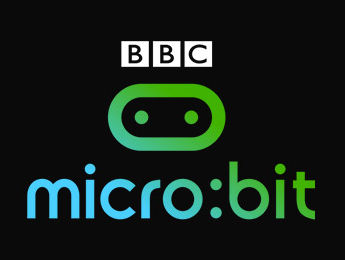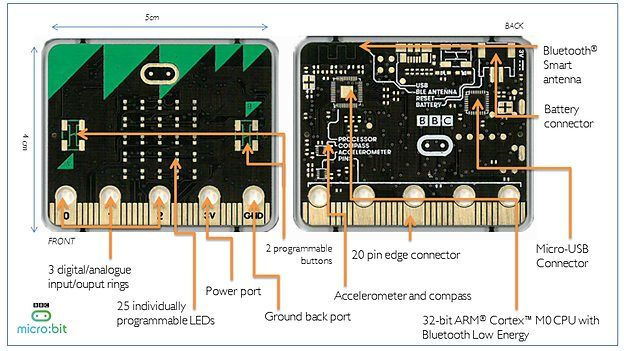| BBC micro:bit Your Next Computer? |
| Written by Harry Fairhead | |||
| Wednesday, 08 July 2015 | |||
|
The BBC, with a group of industry partners, has created a tiny computer that they plan to give away to school children and then offer for sale. Would you buy one?
What exactly the BBC (British Broadcasting Corporation) is doing meddling in something as important as computer education is difficult to say, but anyone who remembers the BBC Micro will know that they have a track record for doing exactly that. The idea now is to create a small versatile computer that is cheap enough to be given away to roughly 1 million Year 7 pupils aged around 11 years old. The exact details of how they will be distributed isn't clear, but it seems likely that either the school or the pupils will have to apply and so I guess the 1 million figure is an upper limit. It will be interesting to see how many requests the BBC actually gets. The micro:bit has been achieved through a collaboration between 29 partners including Microsoft, ARM and Samsung and on paper it seems to be a very interesting device.
It measures 4 cm x 5 cm and doesn't come with a case, keyboard, mouse or display. The processor is an ARM Cortex M0 with an undisclosed amount of memory and Flash storage. The rest of the spec is interesting:
The obvious missing facility is WiFi or wired network connectivity, but the Bluetooth LE makes up for this in many ways. Add-ons are likely to be available via the USB connector. We will have to wait and see what third parties and makers develop. The "rings" are an interesting idea. They are just five large through-plated holes which makes it easy to connect to the three I/O ports, power and ground. The I/O ports are referred to as digital/analog but it isn't clear what this means. There is also a 20-pin edge connector which should provide even more expansion opportunities.
Is this a Raspberry Pi or Arduino killer? The Raspberry Pi has more processing power and it can be used with a screen and keyboard. It is much more like a complete computer and as such lends itself to applications for which the micro:bit would be less suitable. The Arduino has more I/O lines, but it doesn't have the built-in sensors, LEDs and Bluetooth. If the micro:bit is reasonably priced it could well be an Arduino competitor. When you obtain a micro:bit you also get an account on the BBC website microbit.co.uk where programs can be developed and saved. The idea is that a simulator can be used to test programs before they are downloaded, via USB or Bluetooth, to the device. Bluetooth makes a mobile phone or a tablet the obvious programming host. At the moment Microsoft has made available TouchDevelop and Kodu to get children started, but there is also JavaScript and a promise of support for Python, C++ and Blocks. Working with TouchDevelop:
The first micro:bits should be shipping to children in October and soon afterwards the BBC is planning to set up a non-profit to sell the devices in the UK and worldwide. Could this be a change in the way computing is taught? It certainly represents an opportunity to do better but whether the opportunity is taken depends on there being teachers who understand more than their pupils and while there is an educational support component of the project this goal is very hard to achieve. Overall the micro:bit is another small cheap single board raw computer that does far more than you might expect.
More InformationMicrosoft and the BBC micro:bit: a million ways to inspire a generation Related ArticlesBBC Giving Away 1 Million Microcomputers CHIP - $9 Computer To Beat Pi & Arduino Raspberry Pi 2 - Quad Core And Runs Windows Teach Code In School - Before It's Too Late! Computing Teachers Concerned That Pupils Know More Than Them - Updated Computer Science In English Baccalaureate Doctor Who Teaches Programming Four Generations - Video of BBC Micro Software From The 80s Running In Your Browser
To be informed about new articles on I Programmer, sign up for our weekly newsletter, subscribe to the RSS feed and follow us on Twitter, Facebook or Linkedin.
Comments
or email your comment to: comments@i-programmer.info
|
|||
| Last Updated ( Sunday, 04 December 2016 ) |



